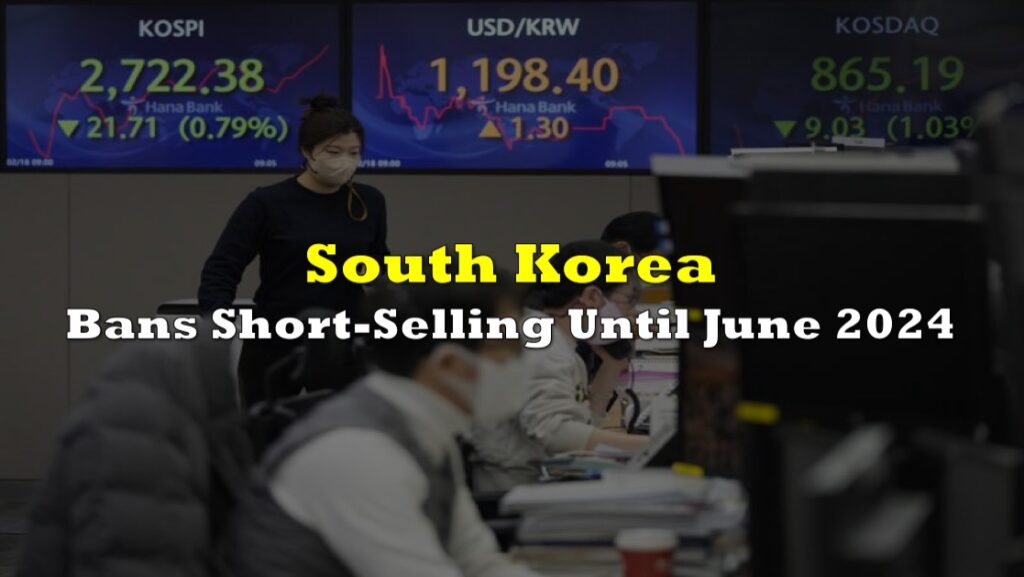In a nutshell, short seller reports expose certain information about the corporation, frequently alleging dishonesty or outright fraud. Because the author has taken a short position in the company, he stands to profit if the share price falls as a result.
However, the hosts of the All-In podcast have noted that some industry mechanisms must be put in place to govern the short seller reporting, particularly in defining the responsibility of disclosures and the validity of reaping the benefits of plummeting stocks.
The podcast is hosted by Chamath Palihapitiya, Jason Calacanis, David Sacks, and David Friedberg. In their latest episode, the foursome discussed the current kerfuffle the Indian conglomerate Adani Group is facing after a short seller report made by Hindenburg Research had alleged a “brazen stock manipulation and accounting fraud scheme over the course of decades.” The discussion, however, turned into what role do short sellers play (or must play) in the grander scheme of things.
Here’s the chart we discussed on this week’s pod showing when the biggest cohorts of tech cos were founded… links to pod below 👇🏾 https://t.co/U9K2ufbsSB pic.twitter.com/a4ur7t1NAU
— Chamath Palihapitiya (@chamath) February 4, 2023
“If you were on the inside of a company and you say XYZ is happening, and it causes the stock to go up and it turns out to be fraudulent, he’s held accountable,” Palihapitiya said. “The question is: should there be the same responsibility for people on the outside… who say the exact opposite of XYZ is happening… which then causes the stock to go down?”
The venture capital firm Social Capital’s chief executive added that while he believes “short sellers are really important part of a well-functioning market,” he suggests holding these sellers accountable “the same way you’d hold an insider accountable.”
“When you put out this screed, if you make money from it, it should sit in escrow and the SEC should actually adjudicate whether it’s true or not,” he added, noting that Hindenburg’s report on electric vehicle Nikola in 2020 turned out to be right and thus, the proceeds from its short position on the company “was well-earned.”
Hindenburg said that Nikola’s founder Trevor Milton made false claims in order to secure agreements with top automakers eager to catch up to Tesla, including accusing the company of producing a video to quiet suspicions about its truck, one that showed the vehicle cruising on a road, among other things.
Milton was convicted in October of defrauding investors by making exaggerated statements about his company’s progress toward creating zero-emission 18-wheel trucks powered by electricity or hydrogen.
In late 2021, Nikola agreed to pay $125 million to settle SEC claims that it deceived investors by misrepresenting its goods, technological breakthroughs, and commercial prospects.
“What if is this Adani thing turned out to be not true?” Palihapitiya asked. “Nobody knows right now except, 50% of the market cap has already been wiped out.”
Towards the end, Palihapitiya cited an article from The Atlantic on Carson Block, who founded the short seller research firm Muddy Waters, which he describes as “where the short selling thing can a little bit go awry.”
Block tweeted at Palihapitiya saying the latter’s “shot” at him “was a little misleading” and their discussion on short sellers was “reasonably uninformed.”
Hey @chamath I thought your shot at me at the end of your podcast was a little misleading – you should’ve disclosed I gave you the name “SPAC Jesus”. Anyway, your guys’ discussion was reasonably uninformed. Would be happy to discuss / debate with you on your pod (or mine).
— MuddyWatersResearch (@muddywatersre) February 5, 2023
The Atlantic article featured an interview with Block and his short-selling career, in which the short seller describes his actions as “investigative journalism married to a different business model” and is trying to rebrand activist shorts as “journalist investors.” It even cited Muddy Waters’ counsel, attending a Delaware court hearing, contending that the Muddy Waters Fund “should be protected from a subpoena by the state’s shield law for journalists.”
“The argument is a stretch. Aside from the fact that attempting to profit from an article would make objectivity impossible for a reporter, much of what activist shorts do would have no place in a newsroom,” wrote Evan Hughes, the article’s author.
Block is currently under investigation by the SEC and the Justice Department in probes on short sellers. He sued the commission in December 2022 for violating the Freedom of Information Act, demanding the SEC to reveal records between the agency and Block’s so-called antagonists.
Block and Muddy Waters sprang to prominence in 2011 after the publication of a scathing research report on forest management firm Sino-Forest, in which the short seller claimed that the firm was fraudulently inflating its assets and earnings, effectively rendering the company’s shares worthless.
As a result of the Muddy Waters report, shares of Sino-Forest fell 82%, forcing prominent investor John Paulson to sell his entire stake at a US$720 million loss. The company initially dismissed the allegations of fraud and launched an independent investigation to be overseen by PricewaterhouseCoopers. But consequently, Sino-Forest filed for bankruptcy protection in Canada under the Companies’ Creditors Arrangement Act.
He also appeared in the documentary The China Hustle, describing his study into Chinese companies securities fraud.
The SEC awarded Block $14 million in whistleblower compensation in March 2022, after a Muddy Waters report launched a successful prosecution.
Information for this briefing was found via the sources mentioned. The author has no securities or affiliations related to this organization. Not a recommendation to buy or sell. Always do additional research and consult a professional before purchasing a security. The author holds no licenses.









